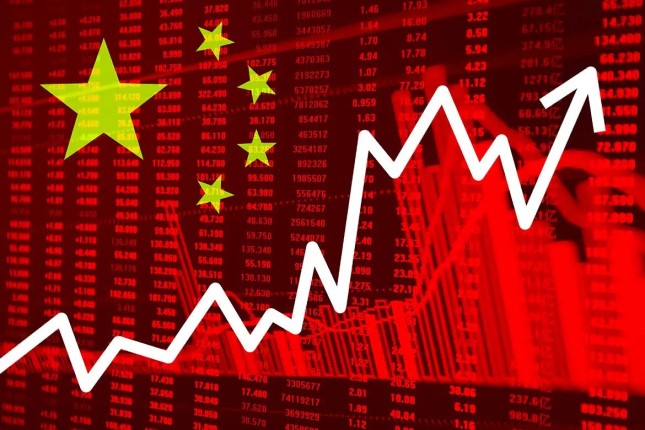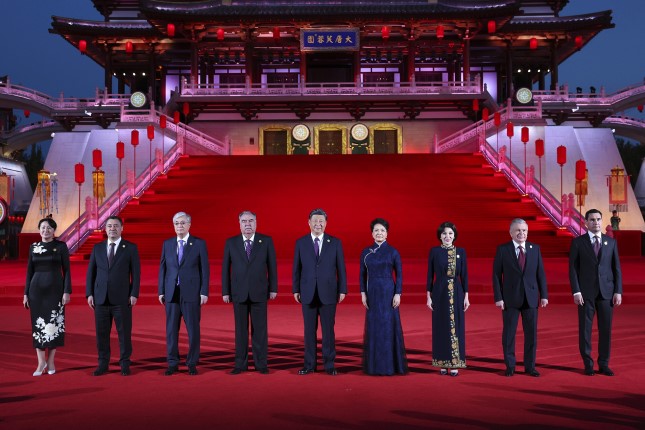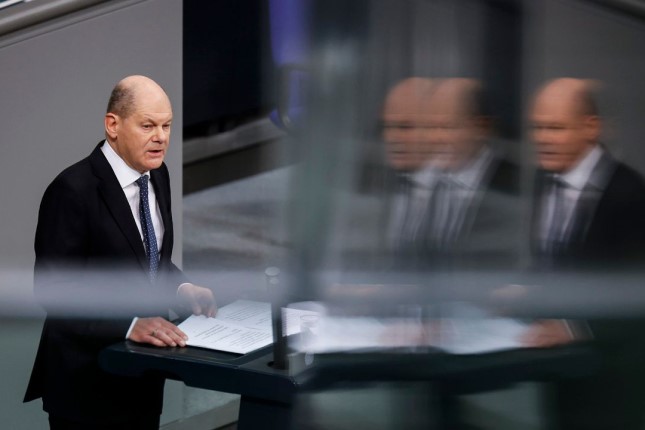Former US Treasury Secretary Lawrence Summers warned the other day of "worrying" signs that the US is losing its global influence. This is happening as other powers unite and gain favour with countries that have yet to unite.
The media is increasingly reporting that countries in the Eastern Hemisphere are switching to national currencies, the dollar is no longer an effective tool of US sanctions pressure. The OPEC+ alliance is managing production, preventing the Americans from buying oil for their strategic reserve at a bargain price.
Meanwhile, China and India, taking advantage of discounts from sanctioned states, are creating an entirely new oil market model with detached logistics, insurance and pricing.
Sanctions records
Former US Treasury Secretary Lawrence Summers expressed his fears about the United States losing global influence on Bloomberg Television's "Wall Street Week" programme with David Westin. He said deepening links between the Middle East, Russia and China, "which recently brokered a rapprochement between Saudi Arabia and Iran", was "a huge problem for the United States." And Washington needs to think about how to address this new challenge.
Earlier, an article in the Chinese newspaper Global Times predicted the failure of US attempts to maintain its hegemony. They pointed out that more and more countries "are calling for a new world order." The Mainichi Shimbun writes that the inter-bloc struggle, which began in the world against the background of Russia's military operation in Ukraine, has led to the global South represented by China and India being able to pull ahead in the global economy.
Just over four months have passed since the embargo on Russian oil supplies to Western countries, and the International Energy Agency (IEA) is already reporting that exports of oil and petroleum products from Russia have become the highest since the pandemic April 2020.
In March, supplies increased by 600,000 barrels per day compared to the previous month, including petroleum products by 450,000 barrels per day. Although, according to the IEA, Russia's export revenues fell 43% year-on-year to USD 12.7 billion, the estimated revenues from Russian oil exports rose by USD 1 billion to the previous month.
But the average price of Brent in March 2022 was USD 114 a barrel, and this year it is USD 79, which is 30% less than last year's figure. In addition, despite the introduction of a price ceiling, the price of Russian oil in early April, according to Reuters, has already exceeded the limit of USD 60 per barrel.
And no matter how hard the US is trying today to persuade India to adhere to the price cap for oil from Russia, it succeeds only in verbal interventions thrown into the controlled media.
East at the helm
Indeed, Russia today places great bets on major oil importers such as India and China. In 2022, more than 60% of total oil exports, equal to 242 million tonnes, were delivered to these two countries. While 67 million tonnes were shipped to China, 85.8 million tonnes were shipped to India.
This year, Russia intends to increase its supplies to both China and India. The two countries intend not only to purchase raw materials from Russia, but also to implement joint projects in various industries.
Moreover, China and India are the biggest exporters of oil products, and the total capacity of their refineries exceeds 1 billion tonnes a year. And today, buying cheap Russian oil, Beijing and Delhi earn a very solid margin by supplying petroleum products to Europe and the USA.
Thus, according to the analytical company Kpler, against the backdrop of a decrease in US imports of gasoline and diesel fuel from the European Union, India sharply increased fuel supplies to the US in February. In January, their volume reached almost 89 thousand barrels per day, which was the highest figure in about four years. At the same time, an increase in the supply of Indian fuel was required to replace imports from the European Union, which decreased after new sanctions on oil products from Russia came into force.
OPEC, yuan and reserve
Meanwhile, dedollarization is gradually gaining momentum in the world. Last year, Russia and China switched to rubles and yuan for gas payments and announced their intentions to switch to national currencies for other energy supplies. Brazil also announced the transition to yuan. In their turn, China National Offshore Oil Corporation (CNOOC) and France's TotalEnergies conducted China's first ever sale of liquefied natural gas on the Shanghai exchange.
Meanwhile, the share of the dollar in the reserves of many countries is gradually declining. Thus, in the second quarter of 2022 it was 59.5%, which is noticeably less than the 85% accounted for by the dollar back in the mid-1980s. Accordingly, the US pressure on the economies of other countries is also declining.
It is worth recalling that in 1974, three years after the US abandoned the link of dollar to gold standard, it reached an agreement with Saudi Arabia: in exchange for security, the Saudis converted all of their oil trade into dollars, and invested (often quite covertly) most of the oil revenues in US Treasury bonds. Over time, other OPEC countries joined this strategy.
Today we see the opposite picture. After publications in the media that Saudi Arabia is considering using yuan to settle oil deals with China, while Russia and India intend to create a payment mechanism "rupee-ruble", the world is talking more and more loudly about the weakening of the dollar hegemony in the oil market.
As the Eastern Hemisphere, led by India and China, begins to form its own model of the oil and gas market, the US is reporting record production volumes. At the same time, however, they deplore the fact that the US strategic oil reserve has shrunk to 369.6 million barrels − the lowest since November 11, 1983.
And after some members of the OPEC+ alliance announced voluntary production cuts of 1.66 million barrels per day starting from May and oil prices went up again, Washington could only express regret over the decision. Of course, the US retains a significant role in the oil and gas market, but its voice is becoming less noticeable against the background of the "Indian and Chinese accent."
































